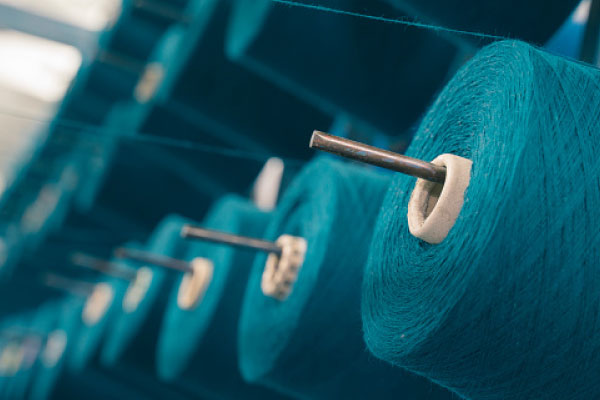Branded apparel and uniforms are a representation of your brand. They’ll also be frequently worn by your team, so it’s important they tick all the right boxes.
This blog post is going to help you answer the age-old question of cotton vs polyester and what material is going to work best.
Both have their own benefits and drawbacks. Read on to find the perfect fit for your situation.
Cotton
Cotton fabric is a soft, fluffy fibre that’s used for apparel, bedding, caps, towels and more. It is made from the naturally occurring cotton plant and creates a soft, breathable and durable textile.

Pros
- Breathable and soft (great for hot weather)
- Hypoallergenic (does not irritate the skin)
- Soft comfortable feel
- Made from natural materials (biodegradable)
- Non-clingy
Cons
- Usually more expensive
- Prone to shrinkage and not as durable as polyester or blends
- Prone to fading and stains
- Slower to dry
Recommended For
- Hot weather (however it does not dry quickly)
- Comfortable quality tees for events or promotional purposes
- Staff that don’t mind properly caring for the fabric
Polyester
Polyester is a synthetic fabric derived commonly from petroleum. It’s a very popular textile used for things like outdoor apparel, bags, bags, clothing and more. It’s economical to make, is strong and long-lasting.

Pros
- Lightweight and dries quickly (moisture-wicking technology for sportswear)
- Very durable
- Resistant to shrinkage and wrinkling (easy care)
- Allows for moisture-wicking technology (dries faster)
- More stain resistant
- Odour resistant
Cons
- Not as breathable as cotton
- Can sometimes be irritating to the skin
- Synthetically made
- Some limitations on certain print methods
Recommended For
- Staff that prefer an easy-care fabric
- Hospitality workers where stains are common
- Outdoor gear like jackets/raincoats
- Sportswear and performance polos
Poly-Cotton Blends
Polycotton is a blend of polyester and cotton. It brings the best of both worlds and is a great all-rounder option that we love to recommend.
Commonly Poly-cotton is found as a 50%/50% blend or 65% cotton/35% polyester.

Pros
- Stronger than cotton
- Provides some breathability
- More durable and easy to care for versus cotton
- Comfortable to wear
- Longer lasting than cotton
- Usually more economical than cotton
Cons
- Best of both worlds but master of none
- Doesn’t perform as well in outdoor working environments
Recommended For
- Most situations
- Compromise for people that like to wear cotton material
The Takeaways And What We Recommend
Polyester, Cotton and Poly-cotton all have their own place in the apparel world so there is no “one size fits all” option.

As a general rule of thumb, we love to recommend poly-cotton for many clients. Polycotton is only getting more popular, bringing the best of both worlds covering some of the weaknesses that polyester and cotton have.
Check out these other helpful resources for choosing apparel for your brand:
- What question should you ask when choosing a corporate uniform?
- Glossary of branded apparel terms
Want some help in choosing what fabric will work best for your team and customers? Speak with one of our branded apparel experts who can provide you with the best suggestions and give advice on displaying your logo.


